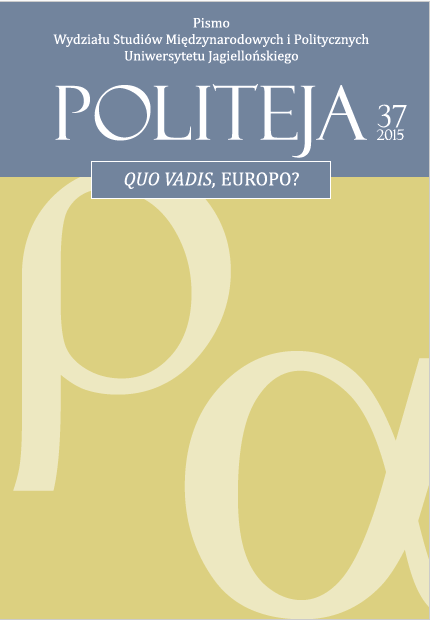Europeanization of the Balkans within an Identity-Based Framework
Europeanization of the Balkans within an Identity-Based Framework
Author(s): Monika EriksenSubject(s): Politics / Political Sciences
Published by: KSIĘGARNIA AKADEMICKA Sp. z o.o.
Keywords: Europeanization; Balkans; nationalism; identity
Summary/Abstract: The process of Europeanization has been traditionally associated with an economic and political transformation, often undermining the value‑based residual effects such as the state’s or group’s acquiescence to take on a European identity. This dual nature of Europeanization is particularly important in the Balkans, where a highly established sense of self is deeply embedded in the fiber of its people. The goal of a unified Europe, and the Balkan ability or even willingness to become “European” is central to this paper’s analytical approach. A key facet of Europeanization is to create, promote and, more importantly, sustain a sense of a pan‑European identity. However, within multi‑ ethnic and conflicting environments the idea of a national identity is often irresolute, as in the case of Bosnia and Herzegovina and Kosovo. The paper tries to conceptualize the notion of Europeanization from a firmly identity‑based framework, discrediting the essentialist approach to identity formation in favor of a more constructivist model. It argues that the notion of a European identity is in fact a shared social value, rather than a tangible idea easily applicable to every situation, and with the Balkans being a particularly difficult case study. In essence, the underlying question is what does the process of Europeanization really mean and how viable is it in the context of a complex environment such as the Balkans?
Journal: Politeja - Pismo Wydziału Studiów Międzynarodowych i Politycznych Uniwersytetu Jagiellońskiego
- Issue Year: 12/2015
- Issue No: 37
- Page Range: 193-207
- Page Count: 15
- Language: Polish

